Photo: Tony Bee
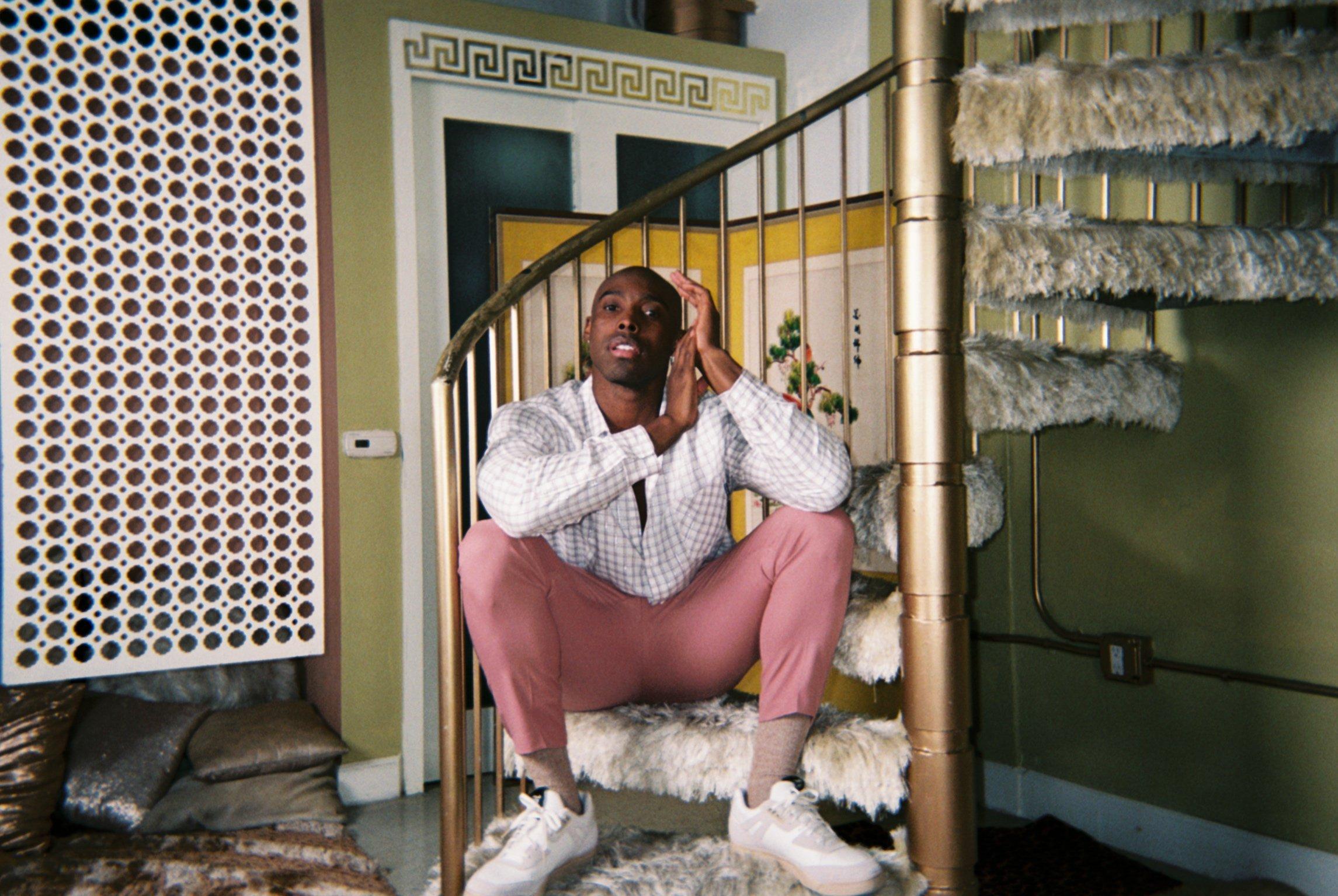
Brandon Lucas
news
Brandon Lucas Talks Staying Hopeful, Working With Dr. Cornel West & Empowering Dance Producers Of Color
GRAMMY.com recently chatted with the Inglewood-born singer/producer, who shared nuggets of wisdom from working with Dr. Cornel West, his vision for his new label, the music that moves him and more
One might not expect activist/author/scholar Dr. Cornel West to put out house music bangers, but thanks to singer/producer Brandon Lucas, this is one gift the craziness of 2020 has brought us. For the debut release on Lucas' Purple Label Sound imprint, "Got That Hope" features a much-needed inspirational sermon from West set to a pulsing, energetic house bass line and echoed by Lucas' enchanting vocals.
It's the debut dance track from the Inglewood-born artist, who got his start singing in his local gospel choir and later in an R&B group. He first worked with West around 2008, helping him bring his powerful words online and into the digital space. They will be releasing more music together next year, as part of their shared vision to honor dance music's Black roots. This is also the mission of Purple Label Sound, to uplift fellow up-and-coming house music producers of color and bring in more a diverse audience with it.
"You can't talk about the great funk tradition without talking about house, techno music, all different kind of bodies—straight, queer, trans, all connected through the depths of their humanity and allowing what is inside of their souls to overflow. That is what the rave is all about. That is what the groove is all about," West said in a press release for the song.
Read: How Contemporary Musicians Are Embracing The Spoken Word Album
GRAMMY.com chatted with Lucas right before he delivered a killer debut [virtual] festival set for Rave The Vote, a star-studded voter engagement concert series aimed at mobilizing the dance music community. He shared nuggets of wisdom from West, his vision for the label, the music that moves him and more.
So, you recently released your debut single, "Got That Hope," with none other than Dr. Cornel West. Amazing! What is the message and feeling that you hope listeners get when they hear it?
Music, I think, is a medium that crosses cultures and languages and color lines and political stances, and it brings people together. This song is a message of hope. And during this unprecedented time of literal craziness, it's something to get people moving and grooving and all that beautiful stuff, because you have to find the joy in your struggle to even get through it. So that's what this song is about, but also giving people that stimulus like "Hey, there can be some hope," and getting them to move into that mode.
Whatever you went through during this pandemic, whether it's been good or bad, whether you're affected by the political climate and the racial strife, I think that everyone is exhausted right now. Dr. West always says, "I'm not an optimist, but I'm a prisoner of hope." It's basically saying "Hey, I don't see anything that's going great right now, but I'm going to stay hopeful because that's the only thing that's going to sustain us."
I love that. It's real.
Right? I'm telling you, it's real. And by the way, not to talk too much and not get to your questions, but I created this music at the top of the pandemic, around March. And I was talking to Dr. West yesterday, he reminded me, he was like, "Brother, you remember when you told me you were with your friends in the desert?" And this is when it was hot on the streets, on Fairfax and Beverly where I live, it was going down. And my friends who were semi-public figures, they were like, "Brandon, there's protests." And I couldn't even go home because there was a curfew, but I just felt convicted being in the middle of the desert with my White friends just chilling, while they were not thinking about it.
Fast forward to a couple days after, I wrote him a letter about it, I told him what was going on, everyone was so amazing, this awakening I think has been so powerful for many people across political lines and racial lines. I think that this song of hope brings everyone together in that mindset, because we are so divisive, we need something that pushes us together.
Can you tell me more about Dr. Cornel West's lines in it?
He says, "Still got that hope in you, but you don't talk about the hope, you enact the hope. And it's in your music, that is the blues, a narrative of a catastrophe lyrically expressed but doesn't allow the catastrophe to have the last word."
Okay, so I started working with Dr. West back in 2008, 2007, something like that. And this is when he first came out with his book Hope on a Tightrope. Hope has been a part of his messaging for a long time. Right now, in the news he talks about how he feels that Biden is a neo-liberal disaster, and Trump is a neo-fascist catastrophe. This is Dr. West. He does not hold back how he feels, and he's going to tell it like it is no matter who it is, you know?
But to that point, we can't let catastrophe have the last word. You're going to go through things. Bringing it back to house music, house comes from that black music tradition where these people from cast-out communities would come to warehouses to party all night and to let that funk out, right? These are your Black, brown, and a lot of queer communities coming together, and the roots of the Black tradition is letting that suffering speak through your music. And we've seen that throughout history. With my music and with this label that we're launching, Purple Label Sound, we hope to bring that back in a meaningful way for house music, in a way that makes sense and that's been in the Black tradition for years.
I would say the Black tradition is the American tradition. It's very American. So it's not really a racial thing, it's really about bringing us back to the roots of who we are with this music, and adding that extra culture to it.
I want to talk more about dance music's roots. As you said, it was created by Black, brown, and queer people—and that's not necessarily reflected in the overall space currently. How do you believe that the dance community as a whole can better celebrate, honor and return to its roots?
In the same way I think a lot of industries should. But, to that point, I feel that the dance community is one of the most inclusive communities that I know. I've been doing music and been in the entertainment world for years. I'm from L.A., from Inglewood, so I've been in it. I grew up in the gospel church, and in the R&B world. I was signed to an R&B group back in the day, I did that whole boy band thing.
But when I found house music, around 2010 or so, I found these communities to be so inclusive and so welcoming, the people all the time that you meet in it. It's a beautiful thing. So, to that point, I think that the dance community is in a unique position to do it, but it takes stepping outside of your comfort zone. It takes doing that work to go outside of just who your friends are. A lot of times, your friends don't look like you just because of where you live and who you're about, you know?
And there are a lot of amazing Black Americans or Europeans from the African diaspora who have been killing it for years in the dance industry, like Jamie Jones, Seth Troxler, and the other giants. They get the recognition. Because they've been in it, those of us who are also in it now are a little bit more digestible to people. I think, just like a lot of communities, that unconscious bias runs through, that people don't think about. People who are good people, who are not racist, just go for who makes you feel comfortable, who are your friends. And that's it.
So, with this label, we're going to be a little bit more intentional about—and it's not exclusively Black and brown artists, by the way, but it's what we're focusing on—marketing our artists in a way that I know that these artists of color should be marketed. It can't be cookie cutter. We're going to do it in the traditions of the Bad Boys, the No Limits and the Cash Moneys—the way dance music is marketed today is not the only way.
I honestly feel that most Black people today, when they think of EDM or deep house or house music, they just think "oh, that's techno." A lot of them don't have any clue that it came from us. That's because what gets put on a pedestal, what gets pushed out there to the mainstream, is not what sparks their ears. And by the way, urban music, Black music, the biggest market [today] for that music is White people. So it's not like if we push more of an urban voice in the dance community that it's not for everybody—it's going to be for everybody. It's just making it more accessible to ears who are more used to a more urban thing. That's it.
Read: Aluna On New Album 'Renaissance' & Making Dance Music Inclusive Again
This has me thinking of a really great conversation I had with Aluna recently—I love her and I'm super inspired by what she's doing now as a solo artist.
She's awesome.
She talked about how she, as a Black woman, felt like an outsider in the dance world even though she was part of a duo putting out big dance hits. Once she learned who first created dance music, she realized it's the way things are being marketed and who's being pushed to the top, and she wanted to change it. And she talked about seeing one or two Black girls dancing in the front at their shows, so she was asked "Where are the other Black girls and what can I do to make this feel more inclusive?"
Well, to that point, I know a lot of girls who love techno, and a big handful of them are Black. But it's not a lot of our faces in those scenes, and I've been in the dance community, going to a lot of shows in the underground and music festivals, so I've been around the scene for a long time.
She's right. I've been in worlds where, when you're Black, you're the only face there. But I think it's really a mindset thing. And, from the start, I understood that there was some connection that I felt. When I first heard house and techno songs, like from Kaskade and Above & Beyond, and Avicii, all of those back in early 2010, Eric Prydz—I felt a connection to it. I was like "Whoa, that chord is kind of like a church chord. Oh wait, I know this song, we used to sing that at church." Or "Oh, this is like an R&B track."
At first, I was excited because I loved the music and the musicality. And even with artists like Skrillex, [where some] people were like, "Oh, this noise," I understood what he was doing musically. I understood the chords. It was crazy sounds but I understood it as an artist and as someone who's been in gospel and R&B forever. For a lot of my friends in that space it was new to their ears, but knew when it was a remake of an old classic song that my mom used to play. I knew Black people would love this music if they were exposed to it the right way.
And I think you're right, what gets elevated a lot of times, is non-urban music. When people think dance music, techno music, house music, you don't think urban music. But it's not either/or. There can be urban music that is deep house, that's tech house. But to be honest, I think that a lot of the Black artists that get pushed to the forefront are people who've been doing it forever. The legends, who should be respected, and who we should be pushed forward and lauded. But what about the new cats? Everyone that people talk about, they're in their fifties. We love them, and they're amazing, but who's got next?
And I am talking to Black and brown artists in the space, who are excited about what we're doing [at Purple Label Sound]. The A&Rs, they just don't get it, they just don't get me. They think it's too urban. What's "too urban?" House music is urban, technically, it started off that way. Since then, there's been amazing contributions worldwide, including from the European scene, in Italy, in Sweden. At the root of it, I think if you elevate the right music in the right way, I think it can cross everybody. You know what happened was, and I always say this, I think Beychella made a big impact on house music.
I had a lot of my Black friends who went to Coachella for the first time [in 2018]. They'd been hearing about Coachella, for a while, but when Beyoncé was headlining, it was like, "We're going to Coachella." When they finally went, I had so many friends like, "I'm going back. Oh my gosh, EDM. Wow, this is amazing. Now I get it." Now they feel the music and the culture, and they're starting to understand it, because of Beyoncé.
Related: Beyonce Created A Space To Celebrate Black Culture At Coachella & More Things 'Homecoming' Taught Us
I want to talk a bit more about Purple Label Sound, because "Got That Hope" is also the debut release from it. What's your hope and vision for the label?
Purple Label Sound came about before even my foray as an electronic artist. I created a few songs, I started creating them during the pandemic. I had time for myself with the self-isolation. And really, it was like, "Wow, what am I about? What do I want to do?" And then the racial strife started to happen, and I created a song with Dr. West. But even then, I didn't understand what I wanted to do as an artist. Of course I was going to release some music, but my focus has always been to elevate other people's point of views, and to take other people to the next level.
I've been working with talent on the music end, on the influencer end and on the actor end for years. My day-to-day, what I do best, is to take people's voices and take them to the next level, and then to great careers. That's what I want to do with this label, is to elevate careers and use my resources and my expertise as an artist, and as an entertainment executive, to help these voices be elevated and marketed the right way to support their ventures. And then I realized I should be putting myself out there too. And the music just kind of ballooned into something where, I was like "I guess I should be doing this as well."
It got to the heart of it. I kept having a lot of people come to me and talk about loneliness. I'm one of those strong friends, where friends talk to me a lot. And it was a reoccurring theme of loneliness and "what am I about?" The music that we're initially putting out is what we call deep gospel. We want to inspire people. That's how came about.
My next release, "Is My Living in Vain," is coming up soon and we're dedicating it to a comrade, a brother of mine, a friend who took his life during this pandemic. He came up with us in the industry, he was an A&R executive. I think you guys have a charity in his memorandum actually, the Quinn Coleman Fund.
I really want to make sure that during this time of pandemic, house music still has a place. It's about joy, about dancing, and about partying, but you have to do that to get through the darkness, right? And so, that's why we're talking about hope, we're going to be talking about loneliness, talking about being introspective, and having music that can move us and get through this.
Yes, Purple Label Sound is about elevating these underrepresented voices, but really it was a call to action for myself—and to the world at large—to take everything that I've done in my life and bring that together to create this label to make an impact on the music industry.
What's one of the biggest things you've learned from working with Dr. Cornel West over the years? I'm sure that's hard.
Yeah, there's so many nuggets. At one point I was inundated with his message so much, it's like I have his talking points in me. He stays on message. He's been saying "last year is the same thing as this year, same thing as two years ago." But I think the biggest thing [I learned] is leadership through service, and using your success and everything you have to generously elevate other people around you. That's the only way you become great. Greatness comes from using, as he says, "the magnanimity of your success." I think that's the biggest one, but there's another big one that's helped me throughout my career, my life, my friendships, and just getting through everything. It's, again, leading through love and service. Being a leader, and leading with your heart, with love and with service.
And one more, I really love how he has a good balance of telling it like it is and being a freedom fighter. He's also amazing at having really thoughtful and curious intellectual discussions with people who he may not agree with. To be honest, the only times you ever see him being in a heated debate is when the other person is disrespecting him. He always says something like, "I'm a gangster, but I'm coming by the blood of Jesus." I really respect how he's always been able to balance having engaging conversations with people across the political spectrum that don't agree with him. There's a mutual respect, and you can intellectualize and hold to your convictions and disagree with someone and hold them accountable and still love and respect them.
That's the hard work.
Yeah. Usually when you hold people accountable, you do it out of love. If you don't care, you won't say nothing.
That's real. What kind of music did you grow up listening to?
So early on, it was a lot of, obviously, gospel. I grew up with Kirk Franklin and the Clark Sisters. The song I have coming out, "Is My Living in Vain," is a deep house cover of the Clark Sisters, who just had a Lifetime biopic come out about then, amazing. J. Moss, Fred Hammond and all those guys, and Yolanda Adams. But also, of course, Michael Jackson and Prince. My three titans going into high school were Missy [Elliott], Erykah Badu and Lauryn Hill. And I would say also the neo-soul vibe of Erykah, D'Angelo, Musiq Soulchild. Those are the people who I've studied.
Donny Hathaway, Kim Burrell. You know, R&B, soul and gospel. And of course, I'm a West Coast dude, I'm from Inglewood, so, I love, love Snoop Dogg, Dr. Dre, Ice Cube, and DJ Quik and Suga Free. I'm a West Coast hip-hop guy, for sure. I love Biggie, love all of the people on the East Coast, Wu-Tang and all them. All those are great, but I am West Coast, I love it.
Read: Gene Farris Talks "Space Girl," Rave Safety & The Return Of The "Bedroom DJ"
And what was sort of the point when you first got into house music, or first were curious about it and sort of dove into that scene?
Well, I've always been into four to the floor songs. Anytime when Justin Timberlake came out with his stuff with Timbaland, like "SexyBack." When Britney [Spears] came out with "I'm A Slave 4 U," and Madonna came out with her songs. I was always into drive-y songs, the disco songs.
But I really understood what it was when I started to hear it in college, when Afrojack had a song playing at the time. I was in the music industry program at USC, and a lot of my friends were into house music. I was exposed to really good stuff, really quick and dove deep into it. So that's how I got into it, by my friends around me in college. I started going to raves, and I really started really listening to the music. My roommate would just give me playlists, and I dove right into it immediately in like 2010, as soon as I got a whiff of it. My first rave was HARD Haunted Mansion or some shit. [Laughs.]
What's your biggest hope for 2021?
I hope that our nation can heal. And I hope that we can party again, man. [Laughs.] I want to travel! I want to go back to Mykonos. I want to go to Tulum, and Croatia, and Ibiza. Shit, I want to go to Miami and New York! I want to travel the world again, and I hope that we can heal as a nation, and as a world. That's my biggest hope, that we can heal, and that people have done the work that this pandemic, and this unique time in history has given us the opportunity to do.
It's really unique, and I'm so blessed to have—I saw that early on in my team. Me and my best friend, Marquees Ezekiel, we were at his house, working from home. He had just built an at-home gym, because we couldn't work out anywhere and had to work out. And the idea of this label just came about. It was like, "Let's go." It's so amazing how God moves, and how that inkling of idea, three, four months ago became this. But it's not overnight. I've been doing this music thing for years. I've been in the industry for years, and it's beautiful, it's crazy how the universe guides us, places everything in the right mode, to set it up the right way to be here and to talk to you.
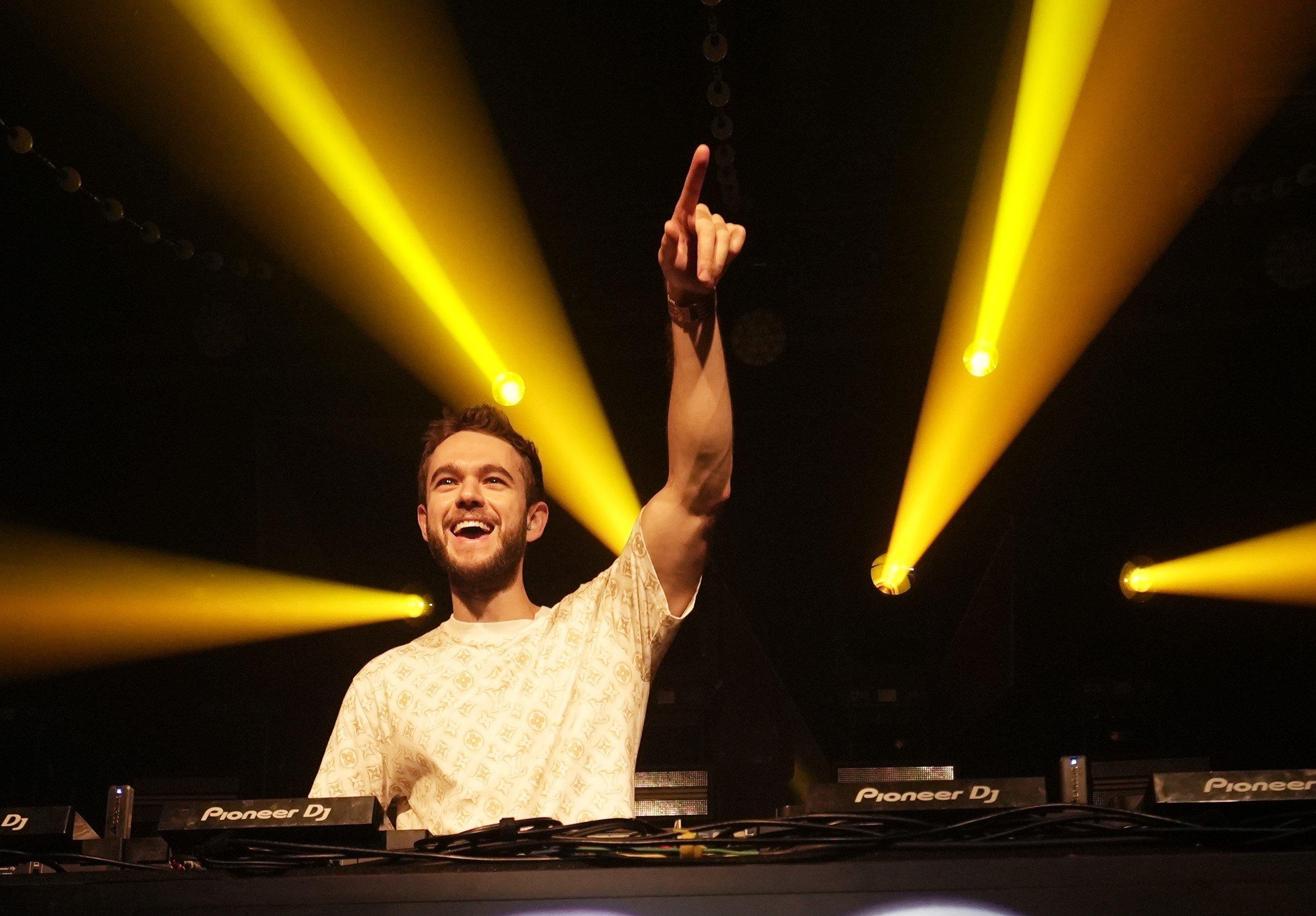
Photo: Ilya S. Savenok/Getty Images for Twitch
feature
Zedd's Road To 'Telos': How Creating For Himself & Disregarding Commercial Appeal Led To An Evolutionary New Album
'Telos' "isn't going to be that pop album that some people may have wanted me to make," Zedd tells GRAMMY.com of his highly anticipated album — his first in nine years.
At the time of our call, the release of Telos — Zedd's first studio album in nearly a decade — is just seven days away. Snug in an earthy brown crewneck, the 34-year-old musician joins the Zoom from his new home in Encino, California, with a degree of poise that some might find surprising at this point in the rollout.
Still, his relaxed body language, decisive, measured speech, and quiet confidence make it clear that any anxiety he once felt about the LP has been replaced by pure anticipation.
"I am honestly just really excited. I think I've released music in the past that I was nervous about, but it's quite different with this album," he tells GRAMMY.com. "I feel very calm and just happy to be able to release this music that I've been working on for so long, some of which has been in the works as late as nine years ago."
Out Aug. 30, Telos arrives about four years later than initially announced and about eight years after it was contractually due. Though Zedd confirmed that the long-awaited answer to his second studio album, True Colors (2015), would arrive in 2020, he indefinitely postponed the project at the height of the COVID-19 pandemic.
"I decided to push back the album to when things are more back to normal," he wrote in a Reddit AMA (ask me anything) in November 2020. "I really wanted it to come out this year, but I put the album on standby because during quarantine, I just didn't feel the inspiration to make this the best album possible."
Timing is everything and Zedd, who counts a clock ticking sample among his stylistic hallmarks, knows this well. Zedd embraced the axiom while making Telos, an album that "isn't for the algorithms" in an era when creative works' cultural capital is largely decided by how well they pander to an algorithm. Telos is decidedly — and in some ways, daringly — non-commercial. "Lucky," alongside singer/songwriter Remi Wolf and "Automatic Yes" with John Mayer, are notably the only two tracks palatable for commercial radio airplay. The 10-track album largely plays like a love letter to classical music (there is an orchestra on the entire LP), with flashes of pop, dance/electronic, jazz, world music, and metal influence. A cross-generational list of collaborators — including 40-year-old musician and composer Jeremy Kittle, who recorded each string for the album one by one, and Gen Z singer-songwriter Bea Miller — further dynamize Telos.
Telos "isn't going to be that pop album that some people may have wanted me to make," Zedd acknowledges. Nor will it be the dance/electronic LP that purists from his name-making run in the early-2010’s might long for. Fans gained during the GRAMMY-winning producer's complextro, electro, and progressive house-heavy era (think "Shave It") have been some of his most outspoken critics in recent years, reproaching his stride into commercial pop.
This response is neither surprising nor foreign to Zedd. "I felt the same way about a lot of bands and artists that I grew up listening to when I heard their new music," he reflects. "In the moment, you might be like, I'm disappointed, 'cause I wanted X, Y, Z, and with a little bit of perspective, you realize what an artist has done, and maybe those become your favorite works when you give it time."
Zedd has already proved his ability to craft pop hits with staying power — with help from some of the genre’s most prominent voices. The 2017 single "Stay" with Alessia Cara (2017) and 2018's "The Middle" with Maren Morris and Grey were two of Zedd's biggest smashes in the dance-pop domain post-True Colors. Both singles achieved platinum certification, though "The Middle" has since struck platinum six times. Like "Clarity" — the 2012 breakthrough single that scored Zedd his sole golden gramophone (for Best Dance Recording) — "Stay" and "The Middle" imbued him with the confidence and greater depth of reference to make an album like Telos.
"If I made another album today that felt the same way Clarity felt back then, you wouldn't feel the same way about Clarity today," Zedd reasons, adding that Telos has some of the "internal motivations" and experimentation of Clarity. "It's just a more mature and experienced expression, so I think the people who loved Clarity will find plenty to love on Telos."
The album's debut single, "Out Of Time" featuring Bea Miller, is likely to serve as one such point of connection. It retains the DNA of Zedd's established, melody-driven sonic identity while still feeling fresh and exploratory.
"It's a really good example of a new version of an old me," he attests. "The real core of what Zedd feels like isn't the sound. It's not the synths, and it's not the kicks you hear at the festival. It's actually really deeply rooted in chord progressions and melodies. Those are well alive, and more than ever, on Telos."
At nine-and-a-half-years-old, "Out Of Time" is the oldest track on the album, penned just after Zedd delivered True Colors (OG fans will recognize the song's chord progression from the intro to his DJ sets). His motivation to repeatedly rework the track and fashion it into the album opener stems, in part, from the feeling that it was "too theatrical" to be a standalone single.
Telos provided "the perfect canvas to deliver all these meaningful songs to my life and to my career that couldn't just be one-offs," he says.
Zedd’s current musical ethos is born from his disenchantment with the direction of music in the age of algorithms and TikTok, and the resulting Telos is the product of his "decision to really be free musically."
"There was one moment in making Telos that made me realize this is like my autobiography. This is everything I am as an artist, and everything I do musically is for me," Zedd says with conviction. "That was a really liberating moment because I am essentially guaranteeing that I'm not going to disappoint anyone because the only audience is me. I'm making this for myself."
"It sounds so silly to even say [this album is just going to be for me] because you would think that everything you make as an artist is for you," he concedes. "But really, the truth is it's hard to block out the feeling that people might be disappointed, and the feeling that you could change a song, and you would make so many people happy."
Telos' exhaustive creation process was as much a matter of deconstruction as it was reconstruction. About halfway through the first version of "Z3," as the album is known colloquially among fans, Zedd scrapped 90 percent of what he'd written, salvaging only "Dream Brother." The hypnotic interpretation of Jeff Buckley's 1994 song embodies the musicality that threads Telos — from the texture of the opening guitar chords and piano, to the swell of strings, and Zedd's signature clock ticking sample in its outro. Telos marks the first and only time the Buckley estate has given an artist the rights to the late creative's work.
"Dream Brother," Zedd explains, was "the only song that felt like this is living very much in the world that I really deeply feel," citing it as "a song that has inspired me since my early days as a musician."
Between his successes on Billboard's Hot Dance/Electronic Songs chart and the coveted Hot 100, it may be easy to forget that Zedd's musicality traces back to childhood. A classically trained musician, Zedd began playing the piano at the age of four and still writes his music on the piano first. Telos is a cerebral reminder that it's reductive to think of Zedd as anything less than a natural-born composer.
Elsewhere, "Sona," featuring the olllam, harkens back to Zedd's days as a member of German metalcore band DIORAMIC in its use of the 7/4 time signature. "Sona" is the first song in this time signature that Zedd has made since his days as a band member (he was the group's drummer from ages 12 to 20).
Still, Telos' unequivocal pièce de resistance is "1685" with GRAMMY-winning English rock band Muse. The six-minute and 11-second album finale takes inspiration from Johann Sebastian Bach's "The Well Tempered Clavier" — the first classical piece Zedd ever learned to play on piano as a child and as he calls it, "probably the most influential piece ever written in life for me."
Named for Bach's birth year, "1685" extends the full-circle nature of Telos. Both a tribute to his favorite composer and a reference to Zedd's earliest days as a musician (he performed a cover of Muse during his very first concert with DIORAMIC), these connections imbue Telos with authenticity and soul.
Intricate and lovingly-crafted, Telos is Zedd at his most musically honest. "It's my entire life in one album," he says. "It's truly an evolution of who I am as a musician."
His decision to eschew trends and commercial formulae to embrace "music for the sake of art" confers a sense of timelessness to Telos. For those versed in gaming terminology (like the multi-platinum producer, a notorious gamer) Telos is Zedd in his final form — a state unlocked only after the successful completion of considerable, skill-building challenges.
Fittingly, the multifaceted nature of Telos and its creator is reflected in the album's title. The Greek word has multiple meanings, including accomplishment, completion of human art, and the end. He chose the name "telos" 30 or so minutes before he had to submit the LP — an ironic timeline for a production that took years to conceive. Yet like all of the creative choices that culminate in Telos, this, too, was part of a thoughtful strategy. Zedd wanted to be sure that the album's title would faithfully capture its concept, even after the LP’s many metamorphoses.
"I really relate to all of the meanings," he says. "Accomplishment of a goal is one of them. I made this album that I was dreaming of making my whole life with the artists I love so much who have inspired me, so it's a genuine dream come true to make this album."
With introspection written on his face, Zedd pauses, then continues: "One of the meanings of 'telos' is the end, and there was a good chunk of time where I thought this might be the last music I will ever release. It's kind of like I put all my emotions and feelings into this one album…is there any reason for me to take space away in this universe if this is all I have left to say? And for a moment towards the tail end, I was like 'yeah, Telos is the name for this album because I will never make another song in my life.'"
But Telos is merely another beginning, briefly disguised as an end. Zedd delivered the album, had a second to breathe, moved from Beverly Hills to Encino, put a piano in his bedroom, and "inevitably started writing new music." Timing is everything.
More Dance & Electronic Music News
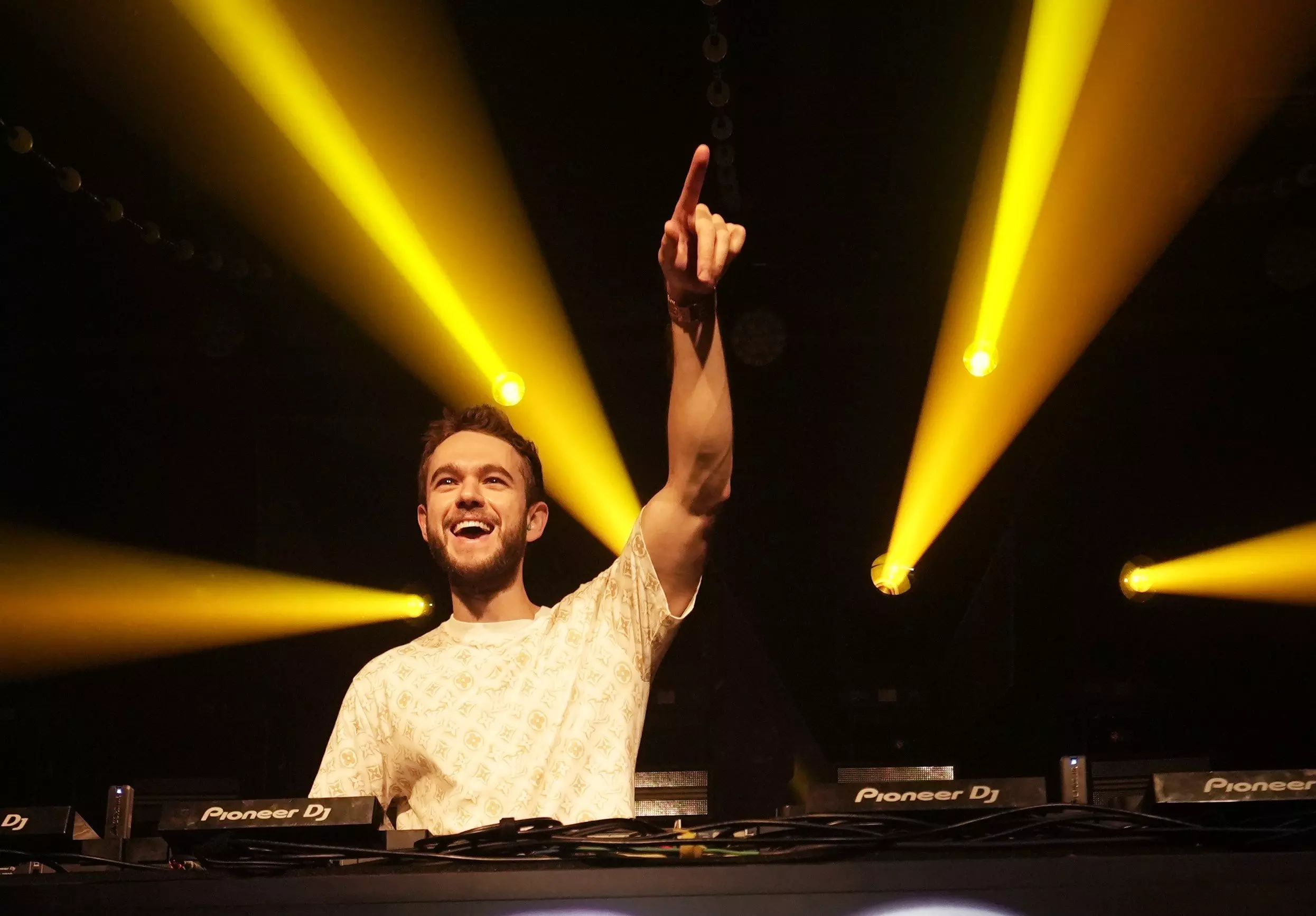
Zedd's Road To 'Telos': How Creating For Himself & Disregarding Commercial Appeal Led To An Evolutionary New Album
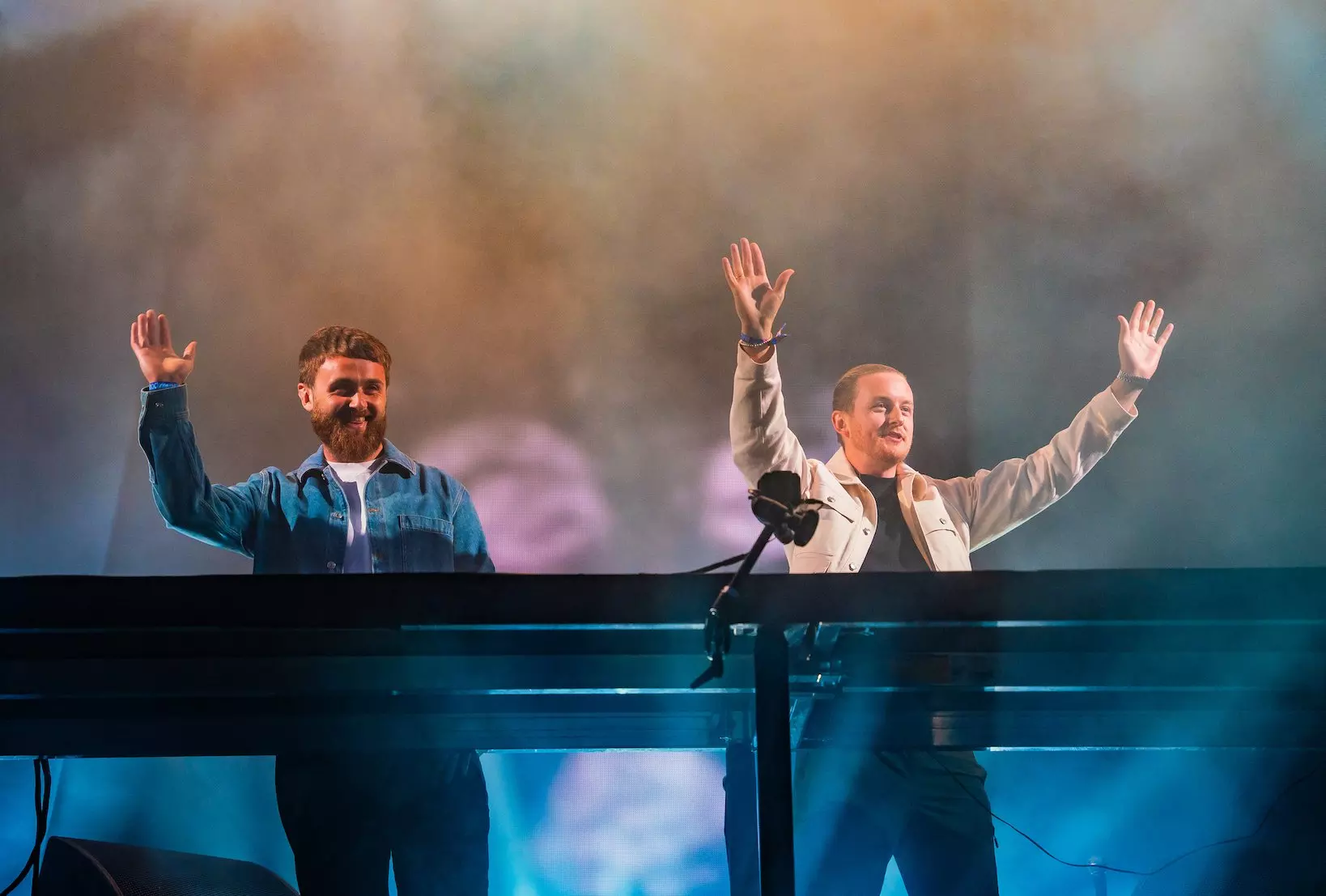
10 Cant-Miss Sets At HARD Summer 2024: Disclosure, Boys Noize, INVT & More
.webp)
Machinedrum's New Album '3FOR82' Taps Into The Spirit Of His Younger Years
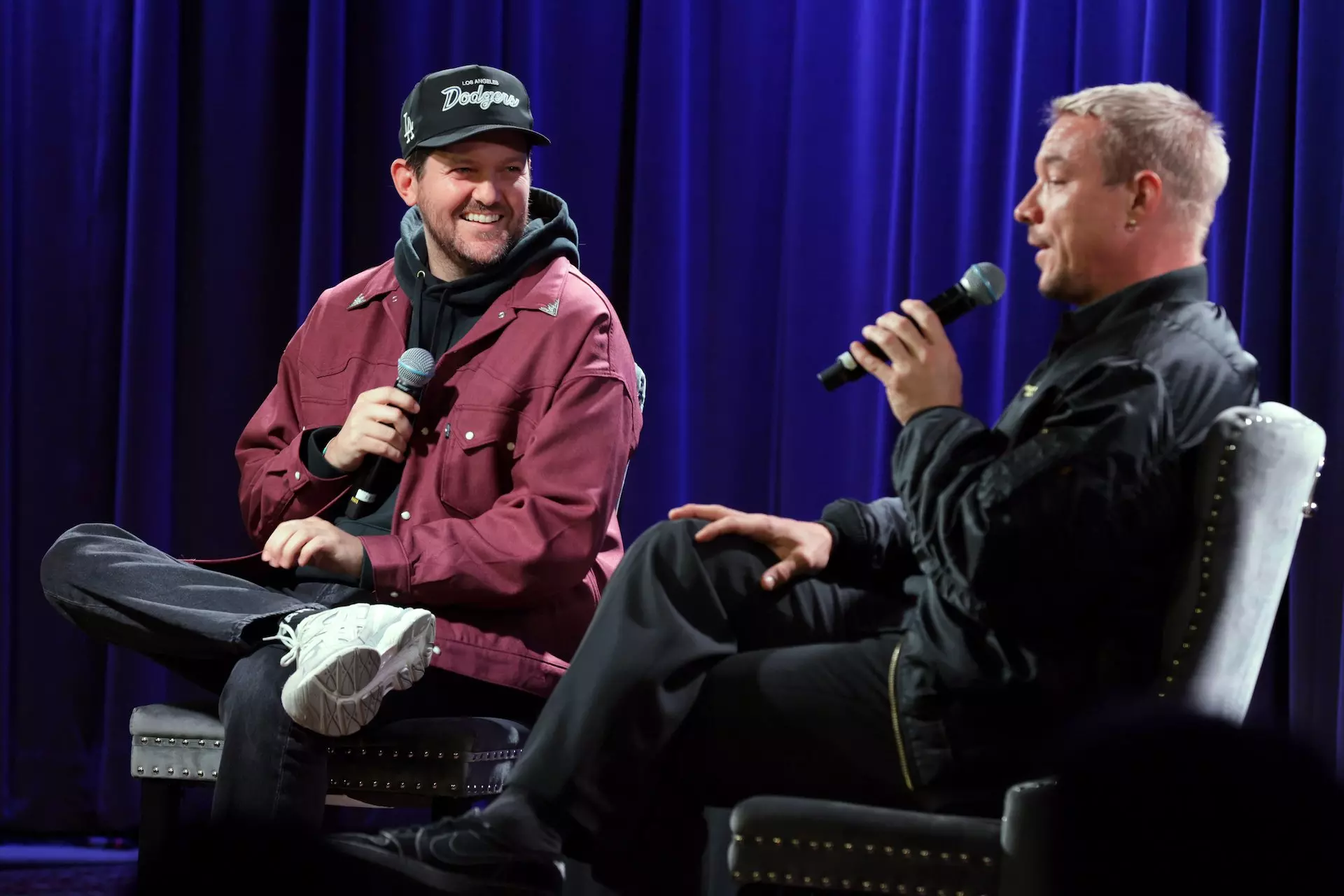
Dillon Francis & Diplo In Conversation: 5 Things We Learned From The GRAMMY Museum Event
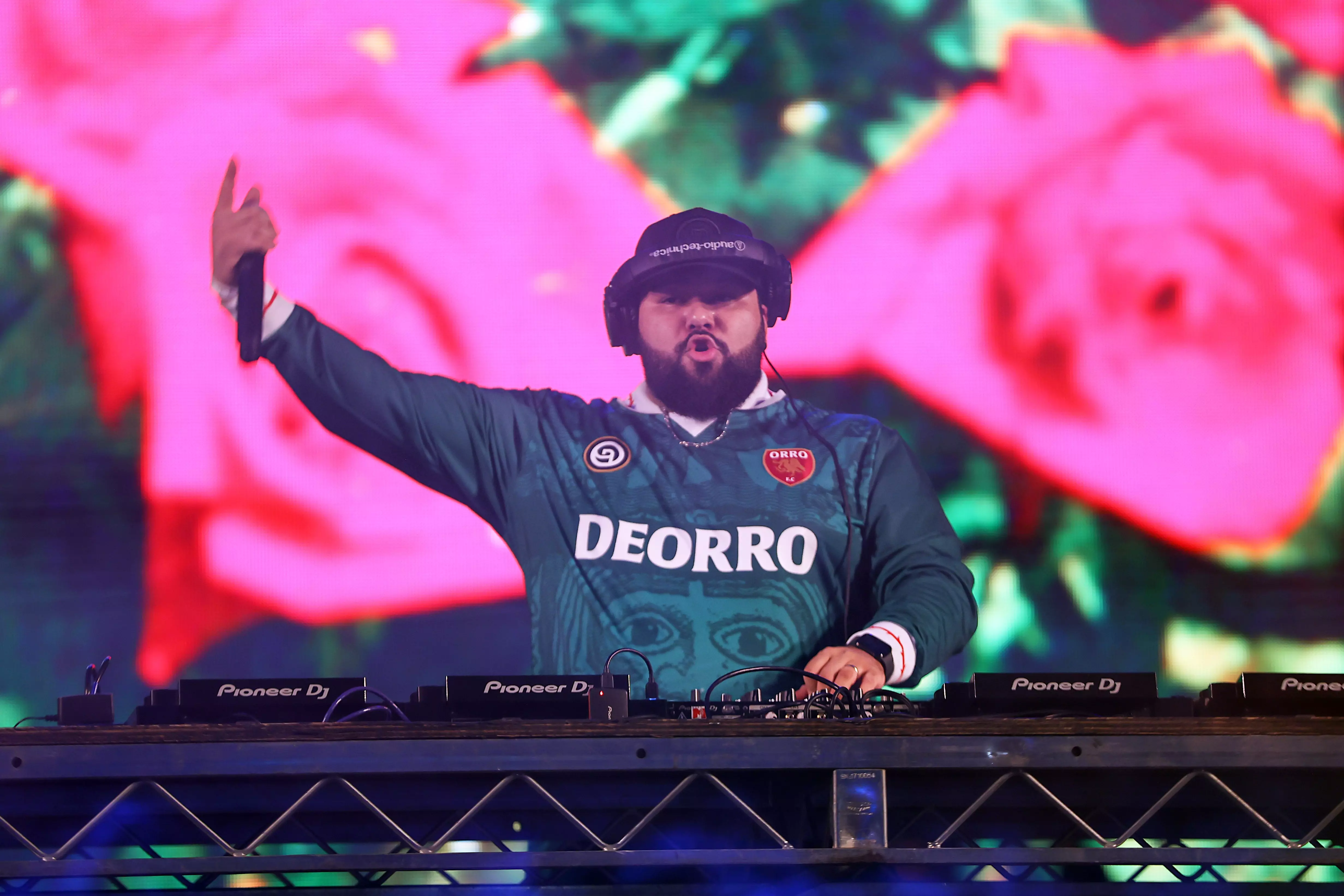
8 Essential Latin Electronic Releases: Songs And Albums From Bizarrap, Arca & More
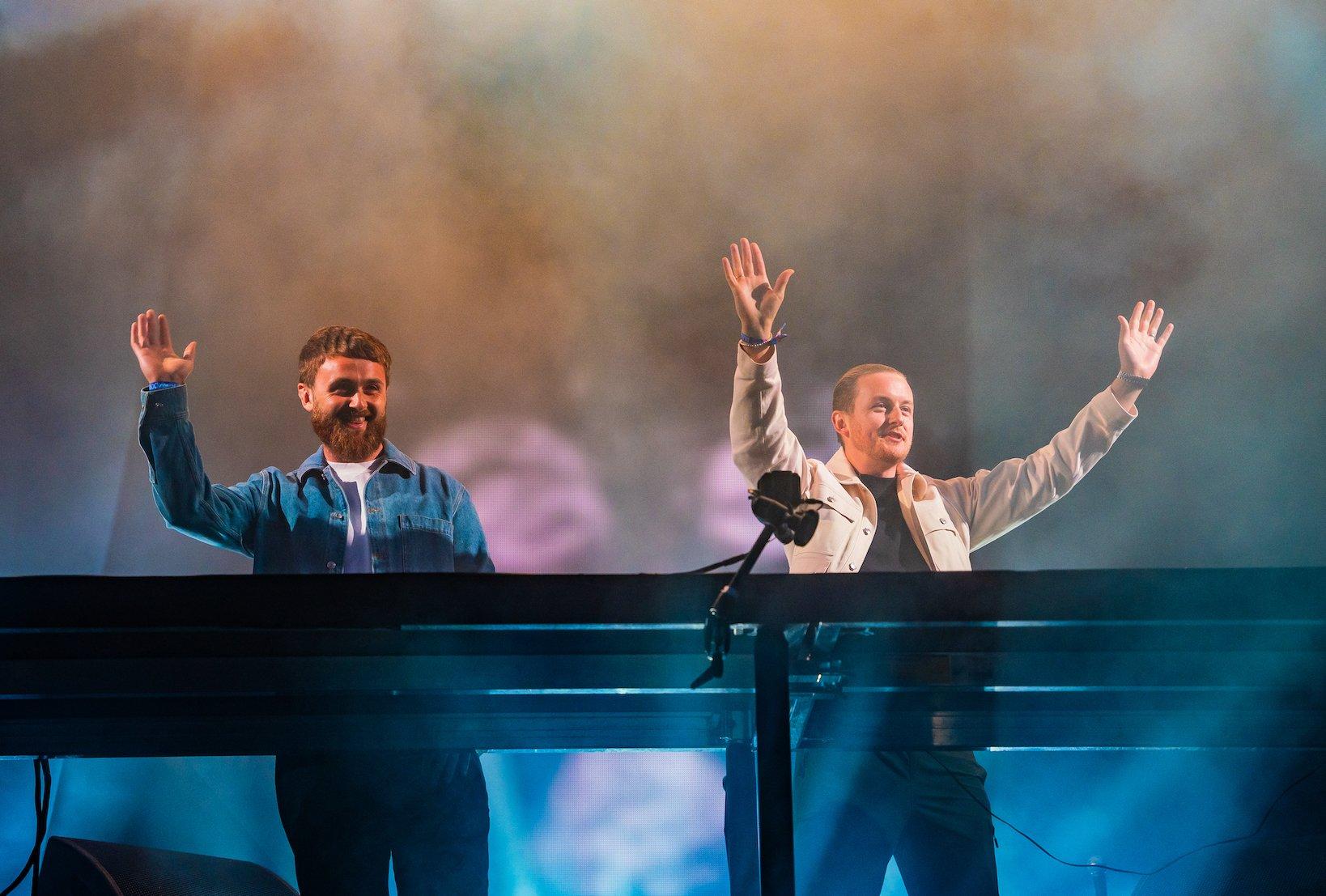
Photo: Venla Shalin/Redferns
news
10 Cant-Miss Sets At HARD Summer 2024: Disclosure, Boys Noize, INVT & More
The L.A. festival is famous for bringing an array of electronic sounds, from dance-pop and experimental techno, to classic house and rare back-to-backs — and this year's lineup features some of the biggest and buzziest acts in dance music.
When it comes to American dance music culture, few events carry the cool cache of a HARD party. Founded on New Year's Eve of 2008 by DJ and former label A&R Gary Richards, the name HARD has become synonymous with taste-making, offering fans an enviable mix of influential headliners and cutting-edge up-and-comers.
HARD parties have been a breakout platform for luminaries like Justice, Skrillex, deadmau5, and more, and the HARD Summer festival is one of the brand's most celebrated flagship events. In 2017, HARD was absorbed into the Insomniac festival family — the same company that brings fan-favorites EDC Las Vegas and Electric Forest to life — which ensures the stage production, on-site activities and other ancillary fun are sure to be supersized. How many festivals do you know that offer a Ferris wheel and a swimming pool?
Coming to Los Angeles' Hollywood Park near SoFi Stadium on Aug. 3 and 4, this year's lineup continues the tradition of blending authoritative artists, legacy DJs and unique back-to-back headliners with buzzy newcomers in a variety of genres and styles.
Whether you wanna rave out with club king Jamie xx, bang your head to bass with Zeds Dead, get tropical with Major Lazer, see what it sounds like for UK grime star Skepta to DJ, or just sing along to mid-2000s belters courtesy of dance-pop crossover queen Nelly Furtado, there's something to please every palette. Of course, in true HARD tradition, we seriously recommend exploring the undercard, because the biggest name in electronic music tomorrow is probably playing one of the HARD side stages today.
While you wrap your head around the stacked lineup, check out a quick guide to 10 must-see acts below.
Boys Noize
A legend on the decks who can play blissful disco or teeth-shattering techno with a smile, Boys Noize is a must-see on any lineup simply because he loves doing the job. He recently teamed with Skrillex on the anthem "Fine Day," and released an entire EP with alt-rap icon Rico Nasty. He's also the producer behind Lady Gaga's beloved Ariana Grande collab, "Rain On Me," and Playboi Carti's "Unlock It," but he's likely to unleash a massive set of hard techno bangers for the L.A. crowd — though you never can tell which direction he'll take you in next, so come with an open mind.
Disclosure
As the top-billed headliner for Saturday night, Disclosure should need little to no introduction to any modern dance music fan — but that doesn't mean you should sleep on their set.
Howard and Guy Lawrence emerged on the scene as seemingly an instant success. The brothers' debut album, Settle, almost single-handedly changed the landscape of popular dance in 2012, moving the taste du jour away from the big-room EDM and bass-heavy trap sound toward a UK garage revival that still carries, and helped launch Sam Smith's career in the process.
In the 12 years that followed, Disclosure has continued to push the envelope — and themselves — working with cross-genre heavyweights including Lorde, Khalid, Miguel, Kelis, Slowthai, and The Weeknd, as well as incorporating international sounds and styles into their club-driven house grooves. Earlier this year, Disclosure returned with the dance floor-ready single "She's Gone, Dance On," announcing themselves as arbiters of disco-laced funk and good-time DJs for 2024 crowds. Surely they'll be in top form come HARD Summer.
INVT
If you like your dark techno to come with a side of hip-shaking Latin rhythms, Miami-bred duo INVT is the experimental sound machine you can't possibly pass up. Luca Medici and Delbert Perez have been best friends since they were kids, and that closeness comes through in their tight experimental sets, blending booming bass with glitched-out techno synths, cumbia rhythms, dembow beats, and acidic edge.
INVT are — as the name may imply — extremely innovative, leaning into their own productions and edits to curate an approach that feels hypnotic, exciting and unique. If you're not afraid of beats that go really hard and get a little weird, this is a set that can set your wild mind ablaze.
Rezzmau5
What happens when you put two of the most unique and hard-hitting producers in electronic music together on one stage? Deadmau5 is one of the scene's leading icons, and Rezz (who released her debut album of deadmau5's Mau5trap label in 2017) shifted bass music culture with her gritty, techno-fueled, half-time sound. The two share a love of dark, stomping, left-field noise, and after years of teasing possible collaborations, those shared interests merged on the 2021 collaboration "Hypnocurrency." Two years later, they released the booming, dystopian 2023 single "Infraliminal" — not just a brilliant rework of deadmau5's 2012 track "Superliminal," but the official introduction to Rezzmau5.
Rezzmau5 haven't released anything since, and live performances from the duo have remained few and far between. But the monolithic duo just warmed up their trippy joint live show at Tomorrowland 2024, which was set in "the mythical realm of Silvyra," a world "filled with creatures, plant life, and people living in harmony." Whether or not their HARD set follows the same storyline, it's certain to shake the skulls of every dancer at Hollywood Park. Prepare your body for something deep, dark and maniacal.
Elderbrook
There aren't many electronic acts that bring the same level of frontman energy that Elderbrook boasts on stage. A multi-talented performer, the UK artist sings and plays instruments, creating a rock-show experience unlike most sets at heavily electronic festivals like HARD. He leads the crowd in heartfelt sing-alongs to hits including "Numb," "Something About You," "Inner Light" and, of course, his megahit CamelPhat collab "Cola."
Bouncing between his microphone, synthesizers and keyboards, samplers and drum pads, his one-man band performance is sure to draw a serious crowd. If you're ready for a break from the hard-edged rave noise and want to ascend to heavenly heights, Elderbrook is the man for the job.
Fisher + Chris Lake (Under Construction)
Nothing is more fun than watching two best mates go absolutely nuts on the decks. And when two stellar DJs go back-to-back, everyone wins, because they spend the whole set trying to impress each other.
Chris Lake is one of the most influential producers in tech house. Fisher is one of the most unhinged and energizing DJs one can ever witness. Together, the besties deliver an over-the-top party with an arsenal of mind-numbing drops, weirdo grooves and just-plain fun vibes that make you wanna hug your friends and dance 'til you sweat. The set is called Under Construction, but make no mistake: these two have completely mastered the blueprint.
JYOTY
If you like your sets to be playful cross-genre explorations of sounds from around the world — tied together by booty-shaking beats and booming bass lines — JYOTY is sure to check all your boxes. She knows how to lead a great party because she spent her childhood frequenting the unmatched clubs of Amsterdam. And with an ethos built around playing whatever the heck she wants, she's comfortable dropping a bit of hip-hop into some Brazilian bops, mixing it up with hard breakbeats, blistering rave synths and more.
Kerri Chandler
If you don't know your history, you're doomed to repeat it, but no one brings the house down quite like Kerri Chandler. A pioneer of the original deep and garage house movements, Chandler was a foundational DJ of the '80s scene, holding down a residency at the legendary Club Zanzibar in New Jersey and founding the MadHouse Records label. If you want to feel the soulful spirit that made electronic music what it is, Chandler's dreamy mix of feel-good melodies served over kickin' club beats are a direct line to house music's roots.
Mary Droppinz
You know how Mary Poppins had a magical bag that held everything from a hat rack to an ornate mirror, a house plant and a Tiffany lamp? Well, California DJ Mary Droppinz comes equipped with a magical USB that's positively bursting with mean beats and original edts.
This woman can blend everything from grimy bouncing bass to ethereal orchestral house, Spice Girls reworks, drum'n'bass bangers, reggae upbeats, '90s R&B remixes and chart-topping hits of the moment twisted into face-melting heaters. You can try to guess where she'll go next, but it's better to just let her take control and follow the vibe through all the devious twists and turns. The one thing you can count on? You'll leave her set dripping with sweat.
Overmono
Disclosure aren't the only brilliant UK brothers on the HARD Summer lineup. Overmono's Tom and Ed Russell hail from Wales and make some of the most inspired club records of our time.
With backgrounds exploring hard techno, drum'n'bass and rave, the brothers combined their talents in 2015 and have since created an enviable blend of soulful atmospheres and frenetic breakbeats that feels nostalgic and sentimental, but still very heavy. Overmono's 2023 album Good Lies is a great play from start to finish, and a good way to get prepped for their critically acclaimed live set. If you need a big-name co-sign, Overmono was recently featured on Fred again..'s "Stayinit" with Lil Yachty on the vocal. That's the caliber they're rockin' with — and the prestige they'll bring to HARD Summer.
Latest Music Festival News
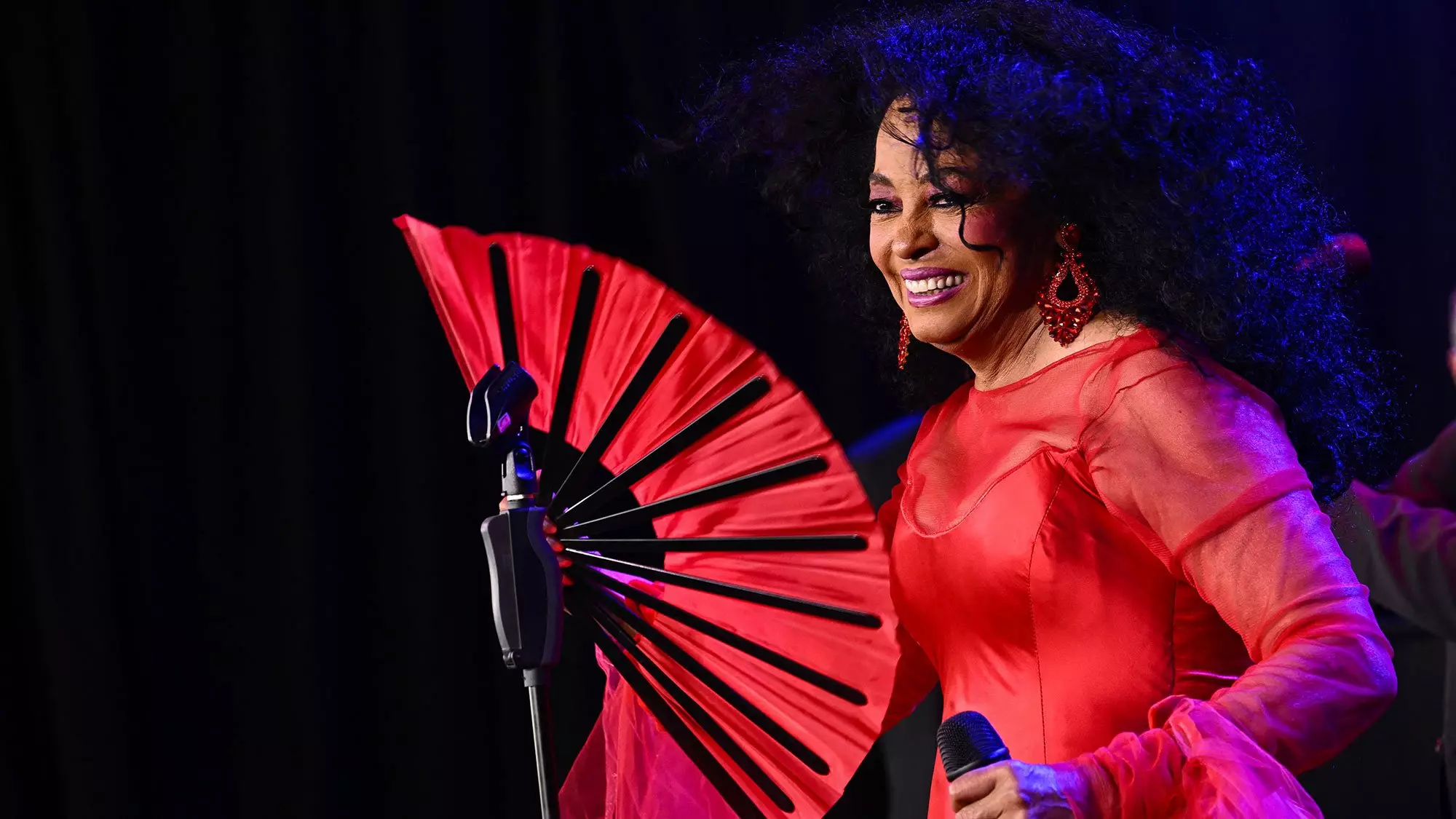
Get Ready For Fool In Love Fest With This Soulful Playlist: Hits & B-Sides From Chaka Khan, Thee Sacred Souls, Smokey Robinson & More
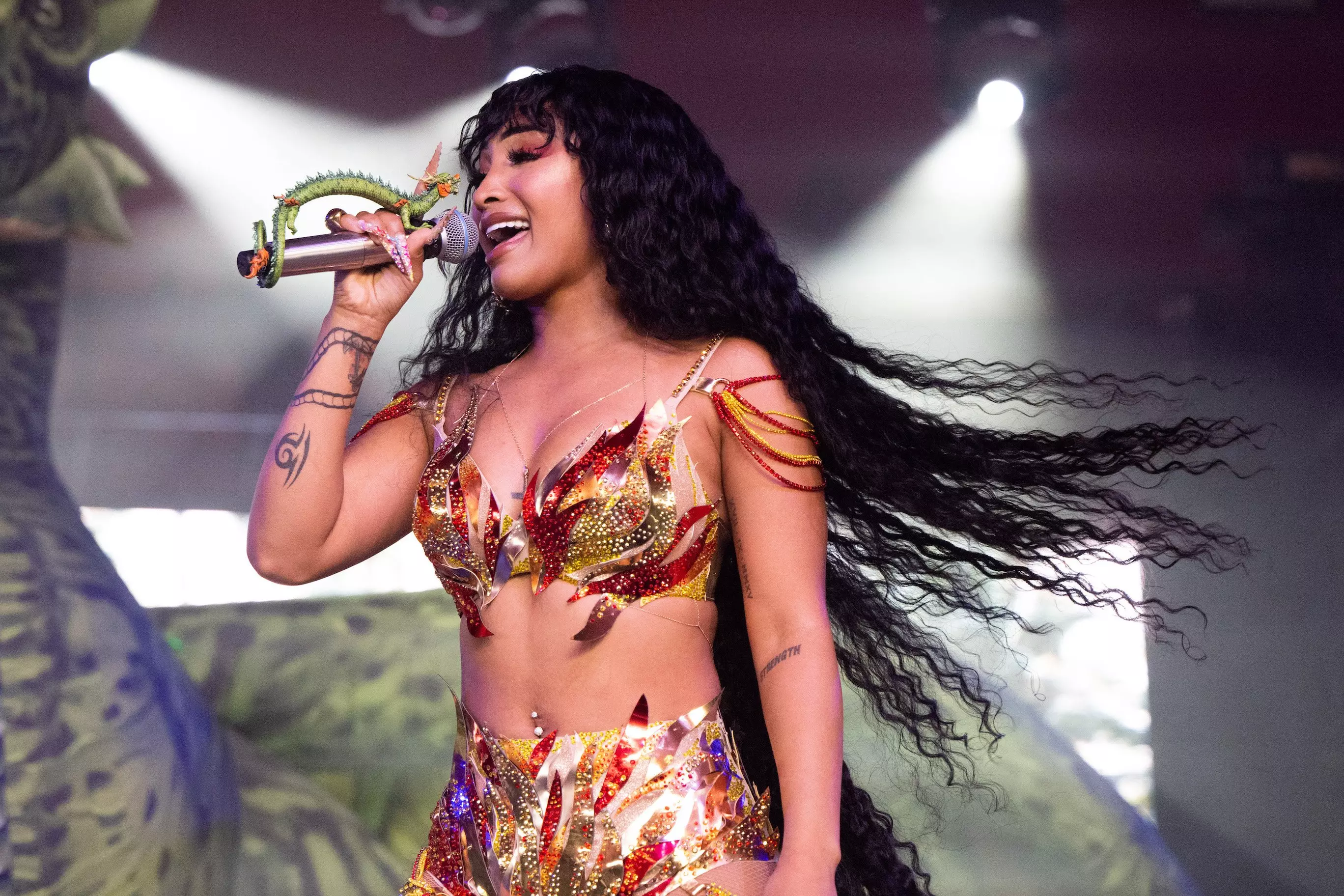
8 Can't-Miss Acts At Afro Nation Detroit 2024: Shenseea, Ayra Starr, Kizz Daniel & More
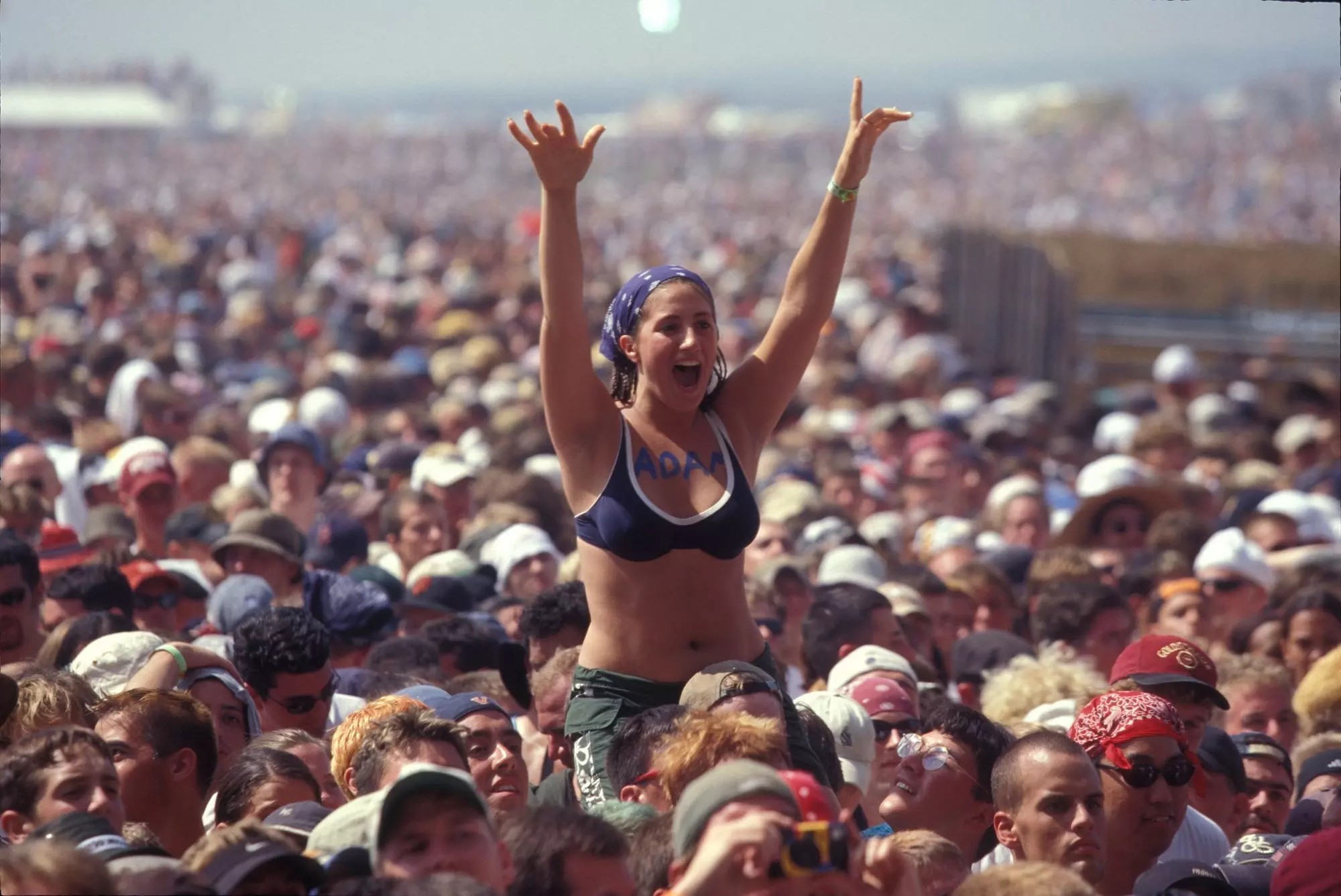
On This Day In Music: Woodstock '94 Begins In Upstate New York
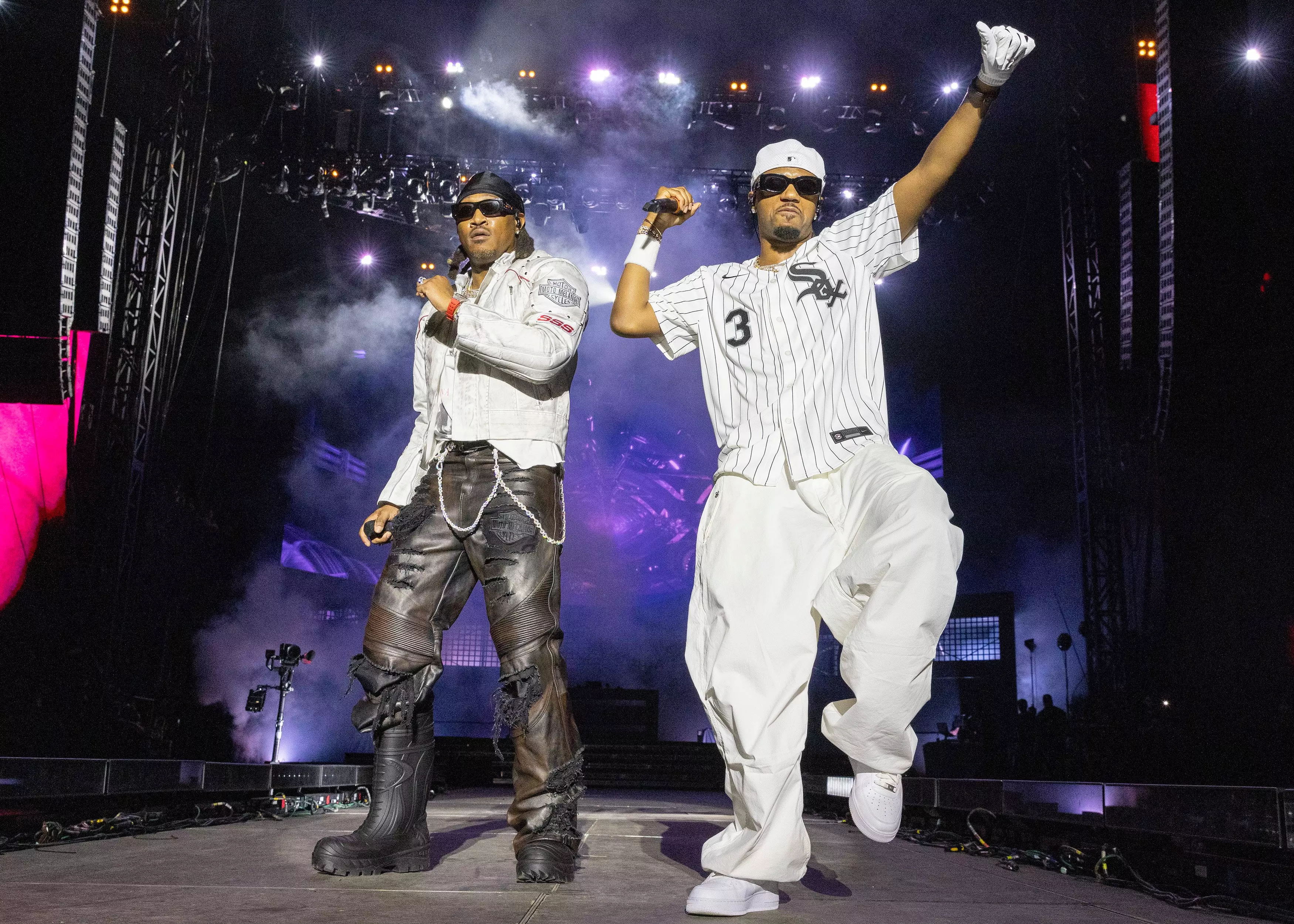
7 Stellar Sets From Lollapalooza 2024: Megan Thee Stallion, Future x Metro Boomin & More

10 Cant-Miss Sets At HARD Summer 2024: Disclosure, Boys Noize, INVT & More
.jpg)
Photo: James King
feature
Machinedrum's New Album '3FOR82' Taps Into The Spirit Of His Younger Years
For his 15th album, Machinedrum drew inspiration from his early productions and ventured into the Joshua Tree desert. There, he collaborated with Tinashe, Mick Jenkins, Duckwrth and more, alongside his longtime friend and collaborator Jesse Boykins III.
“If you were able to go back and hang out or collaborate with your younger self, what would you say to them? What advice would you give them?”
That question fueled Machinedrum’s new album, 3FOR82, out May 24.
Unlike most people, the prominent electronic producer, real name Travis Stewart, has a direct line to his younger self through the music he’s made. He still has hard drives with productions from his teenage years, and on his new album, he sought to create with that same spirit. He wanted to hang with his younger self who was nothing but a kid who loved music with big dreams.
“In that early period where everything is just so free, there's nothing like it,” Stewart said. “I think, as creatives, we all try to find different ways to tap back into that.”
By tapping back into that freedom, Stewart made 3FOR82 into a diverse and exciting body of work. On his 41st birthday (the album title 3FOR82 reflects Stewart’s birthday of March 4, 1982), he started exploring his older recordings, collaborating with his younger self. The result is an album that is more than the sum of its parts. Weaving a wide palette of genres together, including alternative hip-hop, drum & bass, and UK garage — along with a long list of collaborators — it has an experimental hunger to it as well.
Stewart worked with more vocal collaborators than on any past album, featuring artists including Tinashe, Mick Jenkins, and Topaz Jones on 11 of the 12 tracks. With this stronger external input, each track has a unique identity. While “HON3Y,” the only solo production, harbors Stewart's talent for erratic sonic motion, “KILL_U” with Tanerélle is a minimalist soul tune.
Clearly, when Stewart was just starting he wanted to make anything and everything. He started releasing music as Machinedrum in 2000. Since then, he has shared 15 albums and launched various aliases including Tstewart, his atmospheric side project, J-E-T-S, the club-focused collaboration with the respected house artist, Jimmy Edgar, and Sepalcure, his duo with Praveen Sharma that focuses on dubstep and UK garage.
After so much experience, he knows the music industry very well. The good parts and the bad.
“Once you've released a few projects, this new pressure comes along with what your fans expect from you,” Stewart said. Conversely, his early recordings offered a window into an era without any pressure or expectations.
Read on to learn more about where he found the biggest inspiration when he took a trip down musical memory lane during the making of 3FOR82.
Impulse Tracker: His First Production Software
Every artist has to start somewhere, and Machinedrum started with Impulse Tracker, the music production software released in 1995. Stewart is now using industry-standard programs like Abelton, but when he was using Impulse Tracker during his early days, his music was imbued with a kind of youthful optimism that only comes when you’re starting something new.
"For me it was going into these old Impulse Tracker sessions and finding these little nuggets of ideas that I didn't really know what to do with at the time."
When he was working in Impulse Tracker, he only had the skills to make cursory musical ideas, but when he listened back he was really proud of those ideas. “I was just so excited about music. Not to say that I'm not now, but when I listen to electronic music now, I can't help but think about how it was made. Think about what kind of numbers they're doing. Who produced it? What label released it?” Stewart said. “Whereas back then, I would listen to things for the pure sake of listening to them and just be so inspired.”
Finding Freedom In Rules
Stewart often suffers from what he likes to call “choice paralysis.” If there are too many options it can be difficult for him to make a decision. Well, music production presents endless choices. How much reverb to use? Whether or not to use samples? What plugins will make this track sound its best? So, when he was making 3FOR82 he laid down specific parameters to limit his choices.
First, he was only allowed to use sounds that he drew from his Impulse Tracker recordings. He spent a month going through the old pieces of music and created a sound library from them. Those sounds became the album. “That whole process of creating the sound library was incredibly inspiring. Being a digital archaeologist,” Stewart said.
He had two rules if he wanted to sample something outside those old files. One, he had to run the sound through Impulse Tracker so it maintained the same aesthetic. Two, he had to sample music from his birth year of 1982.
“That was one of the parameters that actually made it a lot of fun to explore what music came out the year of my birth and see what things resonated with me. I was finding a lot of interesting synchronicities of stuff that I didn't realize came out in 1982 that I'm actually a huge fan of,” Stewart said.
The Legacy Of Joshua Tree Continues
Plenty of artists have found musical inspiration in the vast deserts of Joshua Tree National Park. Josh Homme founded The Desert Sessions there back in 1997. RÜFÜS DU SOL recorded their live album, aptly titled Live From Joshua Tree among the desert rocks in 2019. Now Machinedrum has joined the musical legacy of Joshua Tree by making 3FOR82 there as well.
He always had a great time there when he visited with friends and family in the past, but he also found a profound sense of clarity during those trips.
“Ideas come to me. I just feel so separated from the chaos of the world,” Stewart said. “I had always wanted to come to Joshua Tree for the pure reason of doing something creative.”
He set up a mobile studio in an Airbnb and invited myriad guest artists to join him in this temporary creative atmosphere and share in the clarifying experience.
His Dear Friend Jesse Boykins III
Jesse Boykins III is a vocalist who has collaborated with Stewart since the 2000s. He was also a groomsman at Stewart’s wedding. When Stewart was out in Joshua Tree, he spent an hour on the phone with Boykins discussing his idea of revisiting the past to make the album. During that conversation, he realized their long history together could further fuel the creative process.
Stewart made Boykins a co-executive producer, and Boykins brought in numerous vocalists Stewart had never worked with such as Duckwrth and aja monet. Stewart instructed Boykins to find seasoned artists when he was courting collaborators so they could bring their own past into the music.
He asked each of the collaborators the guiding question at the beginning of each session: “If you were able to go back and hang out or collaborate with your younger self, what would you say to them? What advice would you give them?”
Sometimes Stewart sampled their responses and added them to the music like with Mick Jenkins’ track, “WEARY.” Other times, the question was meant to inspire trust between Stewart and the collaborators Boykins introduced to him.
“Just having him there, understanding the concept behind the album, and making sure that we're all keeping within the theme, whether literally, or in more of an abstract way, that was super important,” Stewart said of Boykins. “I'm super grateful for his involvement on the album and all the inspiration he gave me. Being there along my side throughout the process. It's very cool working like that with someone. I had never done that with an album in the past.”
Healing His Inner Child
When Stewart was producing 3FOR82 from songs he made as a teenager it was just as spiritual for him as it was technical. During those early years as an artist, Stewart felt very isolated. There was no community around the music he loved growing up in North Carolina in the 90s. Even when his preferred sounds migrated from the UK to the US, it was in cities like Miami and New York, far away from him. In his loneliness, he struggled to believe his dream of being a professional electronic musician was possible.
Well, over two decades later, Stewart has accomplished his dream and then some. By working with music from his past, he was assuring his younger self that everything was going to be OK. “This whole process of collaborating with my younger self on these new songs was so healing for me. It was like a way of me sending a message to my younger self. ‘You're gonna do all these amazing things. You're going to travel the world. You're gonna work with amazing artists. So keep your chin up. Don't worry so much about the future. Just keep going. Keep doing what you're doing,’” Stewart said.
6 Reasons Why Fred Again.. Was Dance Music's Rookie Of The Year
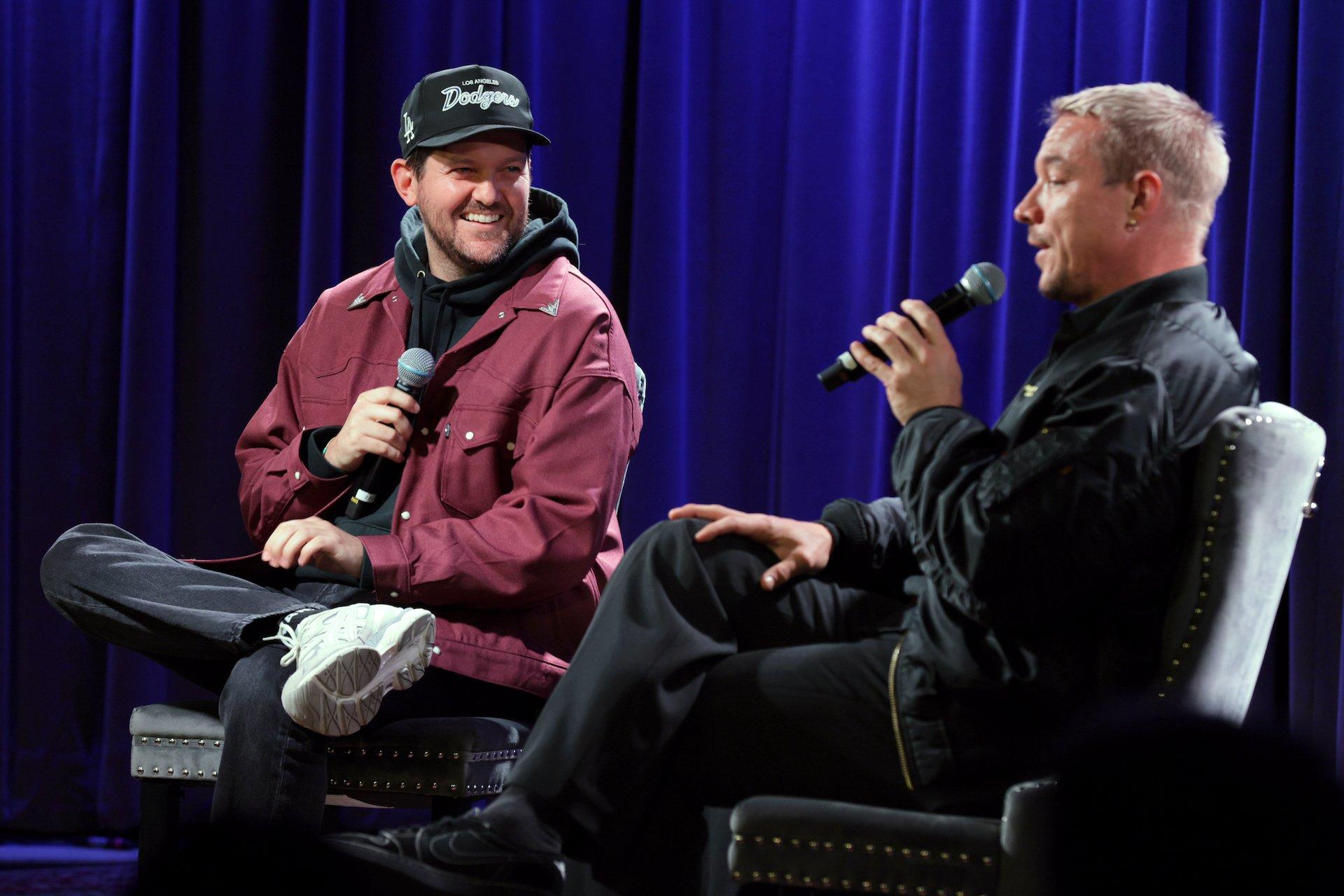
Photo: Courtesy of the Recording Academy™️/photo by Rebecca Sapp, Getty Images
list
Dillon Francis & Diplo In Conversation: 5 Things We Learned From The GRAMMY Museum Event
In honor of Dillon Francis' breakthrough hit "Get Low" turning 10 this year, the DJ/producer sat down with one of his longtime dance buds, Diplo, at the GRAMMY Museum. Check out five revelations from the career-spanning (and highly entertaining) chat.
Dillon Francis and Diplo have respectively built massive careers within dance music — but as they proved on May 15, they may have been just as successful doing stand-up comedy.
The two producers came together at the GRAMMY Museum's Clive Davis Theater for a wisecracking exchange, marking the 10-year anniversary of Francis' breakthrough song with DJ Snake, the platinum-certified "Get Low." It also felt like a celebration of
their longstanding friendship — which predates "Get Low" — as the conversation was filled with humorous anecdotes, insider stories about key moments in Francis' career, and some of Francis' favorite memories with Diplo.
Since "Get Low," Francis has had a mercurial music trajectory. Though he's released three studio albums and a number of EPs, his landmark mixtapes — 2015's This Mixtape Is Fire and last year's This Mixtape is Fire TOO — are the key highlights. Like many dance acts, collaboration has been at the core of Francis' work, particularly within the electronic community; he's teamed up with the likes of Skrillex, Calvin Harris, Martin Garrix, Kygo, Alison Wonderland, Illenium, Alesso, and even Diplo's trio Major Lazer.
More recently, Francis has released collaborations with Ship Wrek, Space Rangers and Sophie Powers, and the moombahton Pero Like EP with Good Times Ahead. The EP includes the bouncy "LA On Acid," whose video — which premiered at the South By Southwest Festival in March — features Diplo in its opening sequencing, along with cameos from Euphoria's Chloe Cherry, Righteous Gemstones' Tony Cavalero and Master of None's Eric Wareheim.
Three days after stopping by the GRAMMY Museum, Francis headed out to Las Vegas to perform at North America's largest electronic dance music festival, Electric Daisy Carnival, on May 18. It was one of many festival appearances for Francis this summer, along with one of several trips to Las Vegas, as he has a residency at the Wynn's XS Nightclub.
Below, take a look at five takeaways from Francis' spirited conversation with Diplo at the GRAMMY Museum.
Francis Met Diplo By Sliding Into His Twitter DMs
The two met in person 16 years ago in Francis' hometown of Los Angeles. Before that, Francis would send Diplo demos for consideration for the latter's record label, Mad Decent. Once Francis realized Diplo had heard his song "Masta Blasta," he slid into Diplo's Twitter DMs — and never left. "I was harassing him so much," Francis quipped. "'Let's please hang out right now. God, please let me come and hang out.'"
Diplo invited him to a bar, and they watched the Phillies (Diplo's team) lose. "It was one of my first blind dates," Diplo said. "I tried to make [Dillon] my ghost producer."
Shortly after their first meeting, the pair worked together on a dubstep remix for Kelly Rowland's "Motivation" — and the more exposure he had to Francis' production skills, the more convinced Diplo was of his talent. "[Dillon is] too good to be my ghost producer. He's already better than me. We got to do a real record with this guy."
Francis' Superior Social Media Skills Began As A Class Assignment In High School
Francis' comedic online presence is the perfect combination of humor and authenticity, adding another layer to his appeal alongside his music. He traced his savvy skills back to his time at Los Angeles County High School for the Arts and a new genres course he took. His teacher considered everything as art, and their creations could be whatever they wanted.
"My friend and I would make comedy videos, basic sketch shows, and we passed the class with flying colors," Francis recalled. "When Vine came around, I did what I did in that class. It was another way of doing stuff I love to do, which is making people laugh."
Diplo then chimed in with a hilariously fitting observation. "You are the Weird Al Yankovic of electronic music," he said. "You had bangers, but you made them funny and you made them accessible to people."
He also commended Francis for opening his eyes to what social media can do for a creator. "You put me onto interaction on social media in different ways," Diplo added. "I don't think any other electronic music DJs were putting their personality out there like you did. You were the first one to do that properly."
Francis' Musical Education Came From Collaboration
As Francis revealed, he dropped out of college after a semester. But as someone who has built his career on collaboration, he's learned everything he needs to know by working with other artists. In fact, he thinks of working with other producers as interning.
"It's my favorite thing to do," he said. "They're going to learn the way that you produce, you're going learn the way they produce. You can cross-pollinate your ideas and come away with new ways to make music. I feel like it also helps with evolving as an artist."
Diplo agreed, noting that Francis' time as a young producer, interning at studios, learning from producers and gaining relationships in the process was essential to his career. "Not to encourage more people to drop out of college," he joked.
Furious 7 Was A Key Player In The Success Of "Get Low"
Diplo pointed out that "Get Low" had its crossover moment after being included in the soundtrack for Furious 7, the 2015 installment of the Fast and Furious franchise. He asserted that it is special for a producer to have a song in a big movie, as he experienced with M.I.A.'s "Paper Planes" (which he co-wrote and co-produced) after it was featured in 2008's Pineapple Express.
As Francis recalled, "Get Low" was already well-received and being played by the DJ community, with about five million plays on Spotify before Furious 7. But once it was part of Furious 7 — first in the trailer and then in the film — it ramped up significantly (and now has more than 200 million Spotify streams as of press time).
"This is when people were buying music on iTunes," Francis remembers. "From the trailer, it peaked at number 5 or something like that, which is huge for any artist in dance music. We're not usually on that chart. To be right next to Selena Gomez with a song that says, 'Get low when the whistle goes,' is crazy."
He Had A Life-Altering Turning Point At 18
After Diplo concluded his questions, Francis took a few from the audience. In response to one fan about what he would have done differently early in his career, Francis opened up about one of the worst moments in his life — which actually turned into a great learning experience.
As he explained, at the age of 18, Francis was charged with a DUI (which was eventually downgraded to wet reckless). His parents spent their savings on a lawyer; he lost his car; he lost his license for a year; he did the DUI classes. And all of it put things into perspective.
"That was the first moment where I realized, things can get messed up and lost," he said. "I was like, 'I need to figure out my career. I'm going to go make money and I'm going to pay [my parents] back.' That was a very big driving factor for me."
Now 36, Francis views the incident as one of the best things to ever happen to him — and, in turn, for his path in dance music. "If that didn't happen, I don't think I would be sitting here on the stage today."
8 Essential Latin Electronic Releases: Songs And Albums From Bizarrap, Arca & More
